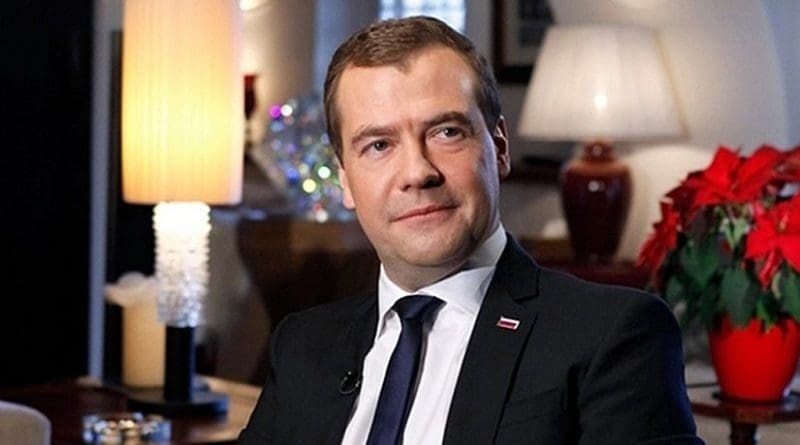‘New’ Medvedev Cabinet Shows Russia Becoming An Obscurantist Autocracy – OpEd
By Paul Goble
The “new” Medvedev cabinet Vladimir Putin has approved both by its large number of holdovers and by a smaller number of new people represents a significant move toward the establishment of an obscurantist autocracy with few chances of any technological breakthrough, according to Aleksandr Golts.
The first “signal” the formation of the government provides is that all talk about Russia making some technological breakthrough is just talk, the Moscow commentator argues in today’s Yezhednevny zhurnal. Neither the old nor the new people are capable of that, and Aleksey Kudrin who could has been isolated in the Audit Chamber (ej.ru/?a=note&id=32490).
The second “signal,” Golts says, is that the obscurantism that has characterized the Russian government is only going to get worse. Not only have Vladimir Medinsky and Olga Vasilyeva retained their positions where they will continue their unfortunate work; and they have been joined by Vitaly Mutko, notorious for his role in the Russian doping scandal.
And the third “and main signal” is that “the regime not only by content but also by form is being transformed into an autocratic monarchy.” The appointments of FSB chief Nikolay Patrushev’s son as agriculture minister and of Yevgeny Zinichev, Putin’s chief guard, as emergency services minister show the formation of an ever narrower charmed circle of cronies rather than competent managers.
If Russia has a real parliament or a genuinely free press, such things would not be allowed to happen without withering criticism. “However, neither the parliament nor the media control the Kremlin at all.” And there is no reason to make any reference to the judiciary which is anything but independent.
According to Golts, “Russia in fact already today is an autocratic monarchy with an unchanged boss whose decisions are not in any case subject to doubt. The only distinction is the absence of the Putin elite of the right to hand over to their heirs not only capital but also titles and positions.”
There also isn’t a system of monarchical succession at the top, the commentator says; but the signs point to a future in which people may look back to the developments of the last week as “the first signs” of returning Russia to an autocracy with all its attributes, “including Cossacks with whips on Moscow streets.”

